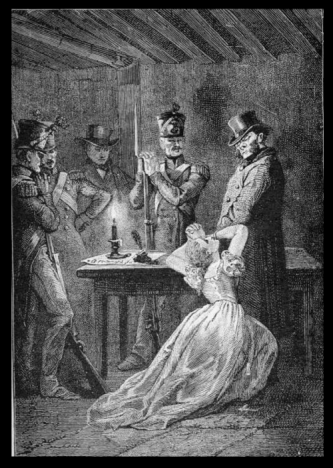Hellraisers Journal: "Fantine in Our Day" by Eugene Debs from the International Socialist Review
Submitted by JayRaye on Sun, 03/06/2016 - 12:58pmwhile there is a criminal element, I am of it,
and while there is a soul in prison, I am not free.
-Eugene Victor Debs
~~~~~~~~~~~~~~~~~~~~~~~~~~~~~~~~~~~~~~~~~~~~~~~~~~~~~~~~~~~~~~~~~~~~~~~~~~
Monday March 6, 1916
From the International Socialist Review: Comrade Debs on the Fantines of Our Day
From this month's edition of the Review, Comrade Debs urges class solidarity and human compassion for the "girls, women who have walked the path of thorns and briers with bare and bleeding feet; who know the ways of agony and tears, and who move in melancholy procession as capitalist society's sacrificial offering to nameless and dishonored graves."
FANTINE IN OUR DAY
By EUGENE V. DEBS
----------
THE reader of "Les Miserables" can never forget the ill-starred Fantine, the mournful heroine of Hugo's immortal classic. The very name of Fantine, the gay, guileless, trusting girl, the innocent, betrayed, self-immolating young mother, the despoiled, bedraggled, hunted and holy martyr to motherhood, to the infinite love of her child, touches to tears and haunts the memory like a melancholy dream.
Jean Valjean, noblest of heroes, was possible only because of Fantine, sublimest of martyrs.
Fantine—child of poverty and starvation—the ruined girl, the abandoned mother, the hounded prostitute, remained to the very hour of her tragic death chaste as a virgin, spotless as a saint in the holy sanctuary of her own pure and undefiled soul. It was of such as Fantine that Heine wrote: "I have seen women on whose cheeks red vice was painted and in whose hearts dwelt heavenly purity."


